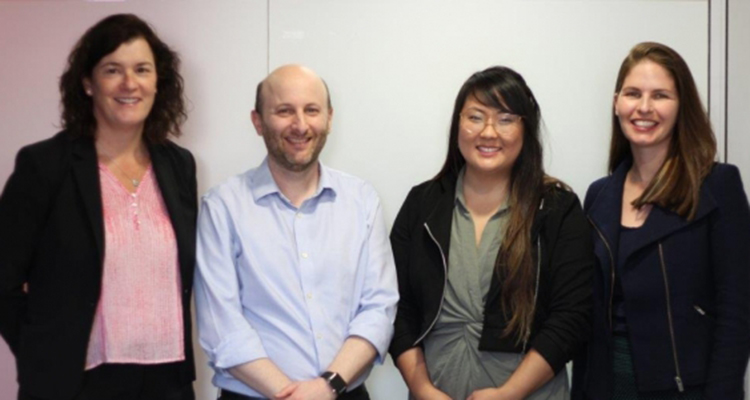
UNSW medical researchers are developing a tool to support families who are deciding whether to enrol in a childhood cancer clinical trial.
An animation is the first publicly available component of a world-first resource that supports both parents and young people who are deciding whether to enrol in a childhood cancer clinical trial. The video has been launched by medical researchers at UNSW Sydney, who hope that it’s the first step towards closing a gap of unmet support needs in paediatric oncology.
Every year, over 1000 children are diagnosed with cancer in Australia. Survival has increased dramatically, mainly due to advances made through clinical trials. A clinical trial is available for an estimated 60% of newly diagnosed children, in contrast to adult cancer patients, where only about 2-10% are eligible for clinical trials.
“Deciding whether or not to participate in a clinical trial is a decision that many families going through their child’s cancer journey will be confronted with,” PhD candidate Eden Robertson from UNSW Medicine’s Behavioural Sciences Unit, who developed the resource, says.
“Clinical trials are fundamental to improving outcomes for children with cancer. However, families can experience high distress and uncertainty when making the decision whether to enrol. Families are also bombarded with large amounts of information. They often lack understanding about these key concepts that underpin the trial, limiting their ability to provide fully informed consent.”
“To address this gap, we have developed a short animation to help explain to parents and young people what clinical trials are. We hope that the animation will encourage families to think more about what the clinical trial means for them, and also to get them asking questions.”
The animation was developed in collaboration with experts in the field, including Professor Tracey O’Brien (Director of the Kids Cancer Centre), and A/Prof David Ziegler (Head of the Clinical Trials Program, Kids Cancer Centre). It was produced by creative agency MediaOne, who have previously won awards for their medical videos.
“We developed the animation specifically for young people as our previous work has suggested that this may be a more engaging and effective method of explaining such complex information. While the video is targeted at 8-12-year-olds, we think it’ll be useful for all ages,” Robertson says.
“The primary audience are families with a child diagnosed with cancer who are considering enrolling in a clinical trial, but we hope that it’ll also help the general population improve their knowledge of clinical trials.”
The animation will be a part of a larger suite of resources – called Delta – that Robertson’s team are developing.
“Delta is the world’s first decision support tool to support parents who have a child with cancer, and adolescents with cancer who are deciding whether to enrol in a clinical trial. It will be available online and as a booklet,” Robertson says.
“Delta will complement informed consent consultations and ensure that all families receive balanced and evidence-based clinical trials information. The content provided to each user is tailored to their clinical trial.”
The resource will be available for both parents and young people, with both versions catering to low-literacy populations. Content is broken into three sections: general clinical trial information (e.g. what clinical trials are, the consent process, and how clinical trials work), specific clinical trial information (i.e. information about the specific trial that the family is being offered), and a decision-making exercise.
“Delta includes a decision exercise which parents can complete, which then shows whether they appear to be leaning towards enrolling in the trial or not. Parents can save or print their responses and use them as a discussion point with their child and treating team,” Robertson says.
“With an increasing number of clinical trials available, there is an urgent need to better support families with a child with cancer deciding whether to enrol. Delta has the potential to improve clinical trial knowledge and reduce decisional uncertainty when making this complex decision.”
The team is currently finalising a ‘before-after’ pilot at Sydney Children’s Hospital and Children’s Hospital Westmead with families who have recently enrolled in a clinical trial.
“Early data confirms Delta is valuable, with all parents reporting that they ‘would recommend Delta to all families making a clinical trial decision’, and that Delta would be have been useful at their time of decision,” Robertson says.
The full suite of Delta resources will be a subject of a randomised control trial that’s currently being designed. Families and adolescents who would like to participate in the trial can contact the team at DeltaStudy@unsw.edu.au. The animation resource is freely available on the Delta Study website.
The project is funded by the Cancer Institute NSW Translational Program Grant, in partnership with the Kids Cancer Centre, Sydney Children’s Hospital. The Behavioural Sciences Unit is proudly supported by the Kids with Cancer Foundation.
- Log in to post comments
